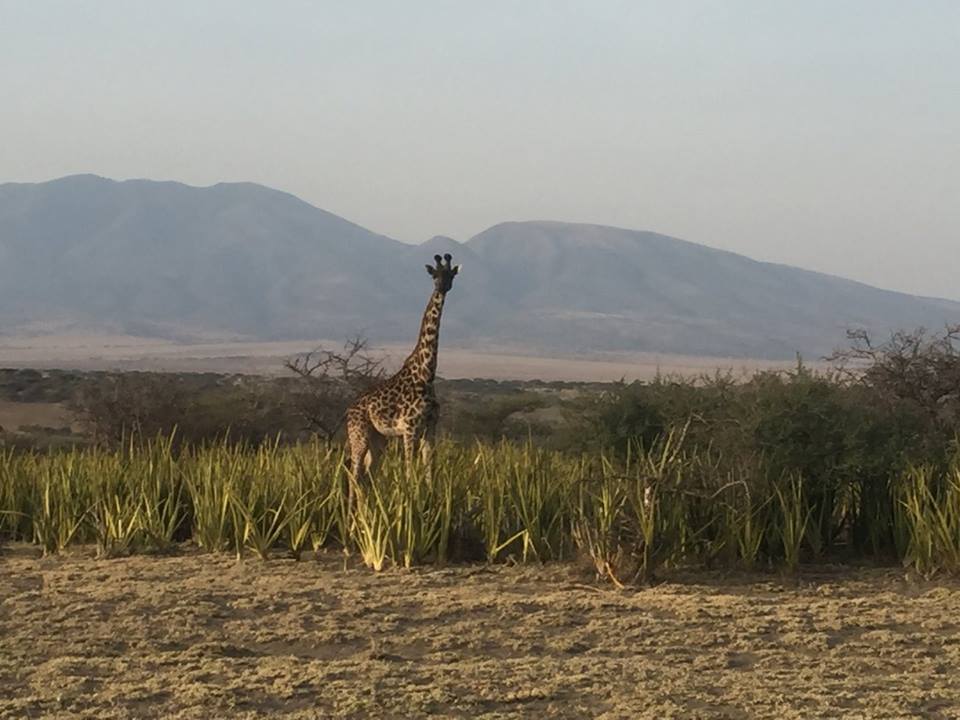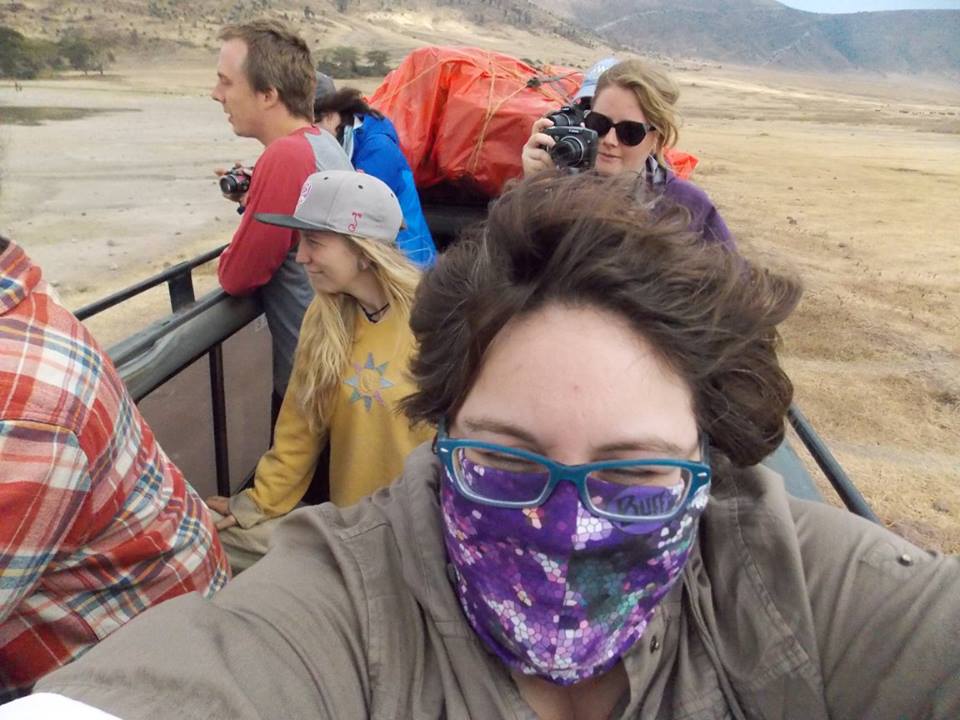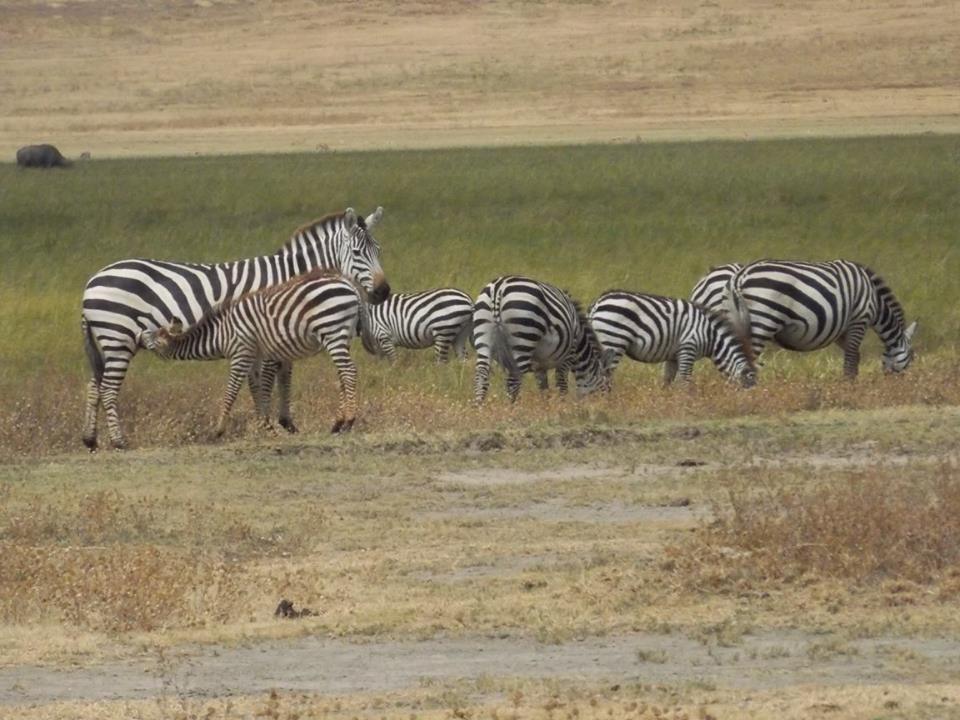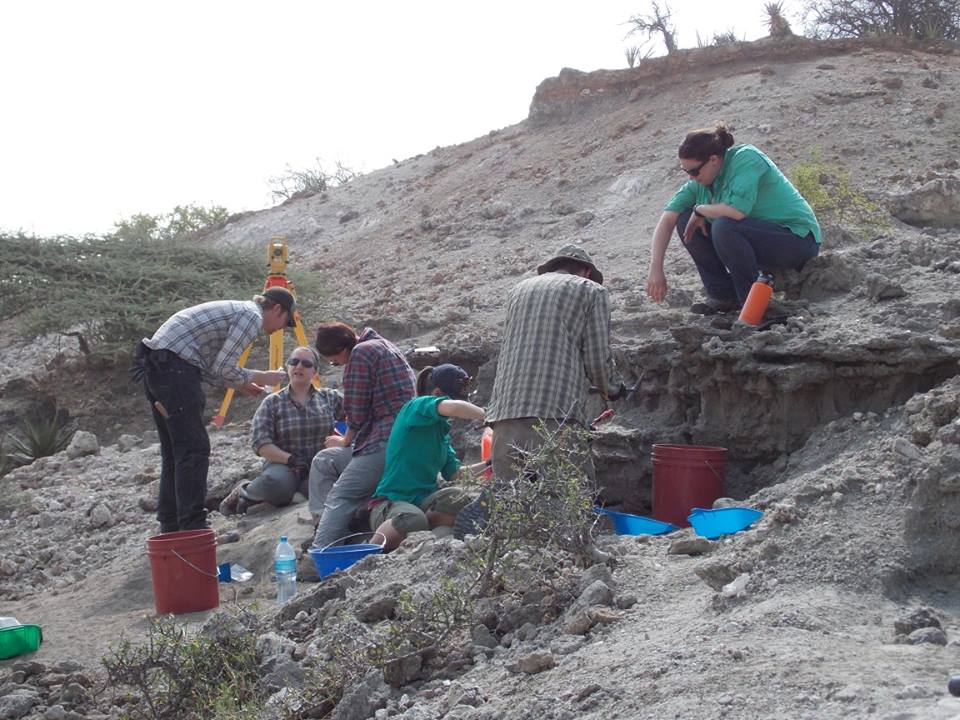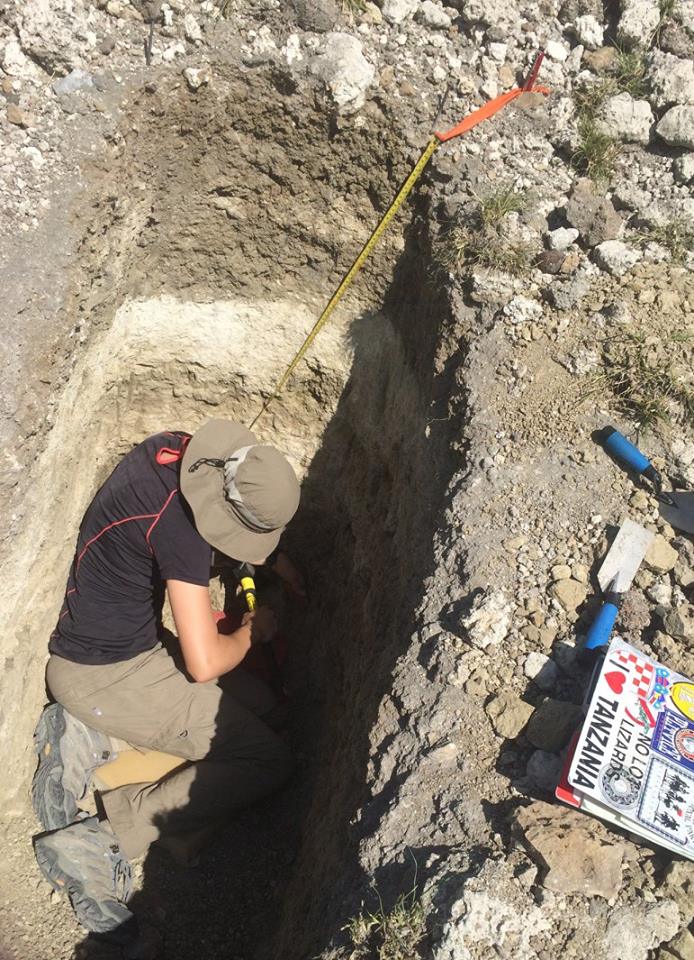Since 2014, teams of students from Earlham have traveled to one of the richest archeological locations in the world, Olduvai Gorge in Tanzania, to work side by side with scientists excavating the site.
Capturing roughly two million years of history in its layers of strata, the Olduvai Gorge continues to reveal clues about how some of the earliest human ancestors lived. Earlham students collect and analyze data there under the auspices of an international group of researchers, The Olduvai Paleoanthropology and Paleoecology Project (TOPPP).
“I gained experience actually working in the field with professional researchers,” says Gavin Curry ’17, who represented Earlham on the project in 2016. “That’s something I never expected to experience during college. Flying overseas to work with people who have large grants to work on this kind of thing was an eye-opening experience.”
From field to lab
The Tanzania experience for Earlhamites is a combination of fieldwork, laboratory analysis on campus, and communication of results. During the three to five weeks of summer fieldwork, students work and live in the Ngorongoro Conservation Area, collecting and conducting descriptive analysis of geological materials. Traveling to and from the field, the team gets glimpses of African wildlife, like lions, giraffes and monkeys.
Associate Professor of Geology Cynthia Fadem, the College’s geoarcheologist, leads the Earlham team each year amid an ambitious research agenda that extends to other geological sites in Armenia, Croatia and Colorado. In fact, Fadem’s zest for mentoring students on undergraduate research led her to be included on national list of faculty who inspire.
“The ultimate purpose of this work is to enhance our understanding of our history as a species and our evolutionary line,” Fadem says of the hominin species who occupied Olduvai Gorge approximately 1.9 million years ago.
Back on campus, students conduct analyses such as x-ray fluorescence and x-ray diffraction of potential tool stone materials and sediments, biophysical sediment characterization and site cartography and modeling in GIS.
Students who conduct this field and laboratory research then also have an opportunity to deepen their knowledge with further lab work, an experience that is typically reserved for graduate students.
“Cynthia is really good at stepping back and letting us run with the research,” says Gabe Rehm ’17. “It’s been pretty exciting to figure everything out, and do it independently but have her here when we need her. I think my work on this project is going to be pretty important to my future.”
The work in Tanzania is one of many experiences that help Earlham be a national leader for producing graduates who are well prepared for the rigors of careers and graduate school. The College is in the top 2 percent nationally for the percentage of graduates who earn advanced degrees, including the Ph.D. Part of that success can be attributed to the spirit of collaboration on campus and Earlham faculty’s unusually strong commitment to mentoring students on research.
Fadem’s research is funded by Geology Department endowments and major gifts to the College supporting faculty-student collaborative research. The addition of a major new initiative called The Epic Advantage this fall will ensure that all interested students have the opportunity to receive funding to complete at least one research or internship experience before graduation. The Epic Advantage is funded by a $7.5 million leadership gift from Alan ’74 and Peg Kral Scantland ’74, and is the largest alumni gift in the College’s history.
The value of research
Fadem has presented her Olduvai Gorge research at numerous academic conferences and, over the last two years, Earlham students — Curry, Rehm, Matt Evans ’18, Katherine Sorrows ’17, and Anisha Dongol ’18 — have joined her as presenters during the Geological Society of America Annual Meeting and contributed to presentations at the Society for American Archaeology Annual Meeting and the International Geological Congress.
“It requires a lot of time, but it definitely has been a pleasure to work on it and knowing you can have a smaller impact on a much larger project is fascinating,” says Evans, one of the students who have presented research with Fadem.
“This kind of research is critical for students because they get a taste of what academic life looks like from start to finish,” says Fadem. “They really go from the fundamental ideas of fieldwork: how you record data in the field, how you sample — all those methodologies — and then you take that back to campus, and do lab work on the samples that were collected and analyze that data. It gives them marketable skills for careers and graduate school.”
Media contact
Brian Zimmerman
Director of media relations
Email: [email protected]
Phone: 765.983.1256
